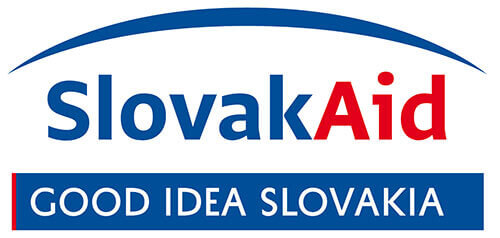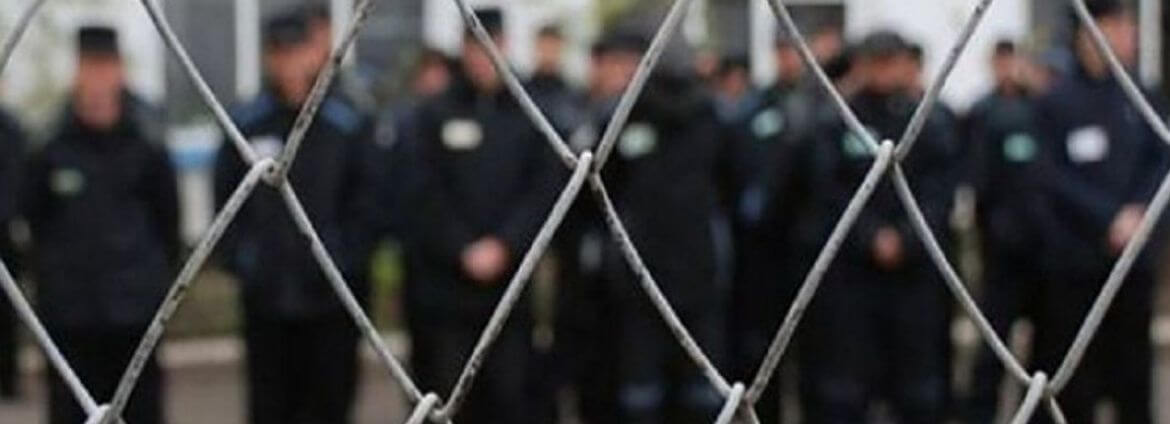The democratic aspirations of the whole world might be behind bars at Valadarskaha Street in Minsk, Belarus. Pre-trial detention center No. 1 is where many Belarus political prisoners spent months or years before their sentences. After the 2020 elections. And after the 2010 elections. As well as after the 2006 elections, and before.
It is the symbol of injury, pain — and struggle for freedom.
As Belarus protests sparked in August 2020, the international media attention shifted to this Eastern European country. Those were the largest protests in Belarus since the collapse of the Soviet Union, as well as among the largest in the post-Soviet area. Some media outlets admired the peacefulness of Belarusian protesters, others tried to depict them as drunk, aggressive, or for-hire. Throughout the active phase of the nationwide movement against dictator Lukashenka, politicians in democratic countries kept making statements condemning violence and repressions against protesters and expressing support for the democratic aspirations of the Belarusian people. However, most foreign leaders underestimated the significance of events in Belarus for world democracy and European security and treated the situation as a human rights crisis that only concerned Belarus itself.
Tens of thousands detained, thousands under criminal persecution, more than 10 — murdered. But do terrible conditions in Belarusian prisons affect the well-being of people abroad? The crisis in Belarus is not as terrific as the events that followed after the coup in Myanmar, or the situation in Xinjiang, China — both of which did not receive strong international reaction. Why would Belarus?
It should have, though. Just like a crackdown in any other authoritarian country. Is it about human rights, universal values, solidarity? Of course, but not only. Autocracy and arbitrariness tend to expand. Seeing indifference or tokenistic reactions from foreign leaders, autocrats strive to export instability and undermine democratic values. When the Ryanair flight was forced to land in Minsk in May this year, it could be perceived as an accident. Lukashenka’s surveillance team learned that Raman Pratasevich would fly above Belarus and made the decision to arrest him to threaten the opponents both abroad and within the country. The regime fulfilled its purpose — and that seemed to be enough. Then, however, Belarusian authorities orchestrated a migration crisis, tried to arrest an Olympic athlete, and are now threatening to neglect drug trafficking through the EU border. This was all, obviously, criticized by the democratic states. But Belarusian authorities had something to oppose to that criticism — tangible support from the axis of autocrats.
Democratic revolutions set precedents for authoritarian countries, both their people who may be inspired to overthrow their own corrupt governments — and leadership who see these precedents as personal threats and strive to prevent them. They invest heavily in security, surveillance, propaganda, and backstairs influence abroad. They need these for survival and are perfectly aware of that, and that — propaganda workers and security officers — was exactly what Lukashenka received from his allies in the aftermath of rigged elections.
Democratic countries, on the other hand, increasingly take democracy for granted. As democracy is getting off the domestic agenda, the foreign policy is becoming shaped by economic considerations only, not values. If this trend continues, the world will be getting more and more authoritarian, and what the democratic community can do about it is solidarity. Real solidarity.
It is not the EU’s or U.S.’ responsibility to overthrow corrupt governments and protect human rights outside their own borders. But replacing real support for democratic aspirations of people hostage to hominivorous regimes with endless statements of «deep», «strong», «grave», «extreme», «serious» concern or letting lobbyists diminish sanctions and do business with human rights abusers as usual is the way to global authoritarianism. If you don’t resist the pressure of autocrats, they will come after you.
In a keynote address delivered at the European Parliament, the Leader of the Belarisian democratic forces Sviatlana Tsikhanouskaya outlined a three-part strategy for overcoming the virus of dictatorship: isolation, treatment, and immunity. First, the abusers of human rights and freedoms cannot fully represent the people of their country. Second, democratic countries should push back on the regimes and limit their access to the resources. Third, the international community needs to boost the natural resistance of societies under authoritarian regimes.
And this is where we come to the topic of political prisoners. There are more than 900 people recognized as such by human rights defenders in Belarus now, and probably thousands kept behind bars on political grounds.
All with different backgrounds, social statuses, and coming from different cities, they all decided to oppose the regime being perfectly aware that it is brutal and violent.
Brave and talented musician and manager Maryia Kalesnikava, who took charge of Viktar Babaryka’s HQ and, with her smile and optimism, inspired millions of Belarusians. In September 2020, Maryia refused to leave the country when Lukashenka’s surveillance tried to deport her. She was sentenced to 11 years in prison along with her friend and colleague Maksim Znak, who was sentenced to 10.
Brave volunteer and loving mother of five Volha Zalatar, who administered her local community chats. While detention and in the aftermath she was reportedly tortured. Not long ago, the so-called court passed a guilty verdict and sentenced Volha to 4 years in jail.
«As a mother and a Catholic, I stand for human dignity and spiritual values. All my actions and statements are prepared with love for people and with hatred for lies and violence», — said Volha in her last word.
Brave and caring 21-year-old Artsiom Paulechka, who, though not protesting himself, tried to protect protesters from arbitrary detentions. He tried to push riot police officers back from the protesters. On January 14, his Birthday, Artsiom delivered the last word, in which he said that he repents and apologized to the riot police officer who wasn’t injured. Artsiom was sentenced to 3 years in prison.
Brave and courageous Hrodna Azot worker Siarhei Shelest, who encouraged people to exercise their right to strike. He is charged with «High treason» and kept behind bars. Not much is known about Siarhei or other activists of the Workers’ movement because it is strikes that the regime is most afraid of.
Brave and self-confessed human rights defender Ales Bialiatski, who has already been a prisoner on political grounds after the previous elections. He was arrested during the July crackdown on NGOs, media, and civil society and is charged with «Tax evasion».
Brave and creative businessman and co-founder of two media outlets Aliaksandr Vasilevich. He was detained in August 2020, and his lawyers cannot even disclose his charges. He has a wife, Nadia, and two kids. Aliaksandr hasn’t seen his newborn daughter yet.
Brave and dedicated editor-in-chief and director of BelaPAN news agency Iryna Leushyna. She faces charges with «Tax evasion» and the «Creation of an extremist formation». Iryna realized that the authorities would arrest her but to stay was her principled position. As a leader, she was responsible to the team and subscribers. Colleagues call Iryna «the honor and conscience of BelaPAN».
All these people are united by their aspirations to live in a better world and serve their society. Some of them had been active before 2020, some only came to civic activism in the summer of last year when they felt the hope for changes: for a new president, for the democratic transition, for freedom. They invested their time and effort in it, understanding all the risks. They believed that change was about to come — but the autocratic axis helped the dictator stay in power and organize a large-scale crackdown.
Ally autocrats supported Lukashenka and his surveillance, but who will support those who are trapped behind bars because of their democratic aspirations? Of course, Belarusians — both within the country and abroad — are in charge of demonstrating solidarity, sending letters behind bars, organizing care packages.
Though, sometimes domestic resources are not enough to oppose a brutal force, especially supported externally.
Belarusian political prisoners were struggling for democracy in Belarus. But think: didn’t they protect democracy abroad? Would they, seeking truth, justice, and equity, approve of smuggling cigarettes to Europe? Would they, dedicated to their values, threaten Europe with a nuclear power station? Would they, respectful to human rights, assassinate their opponents abroad? By opposing the corrupt regime, they opposed the malicious practices it uses abroad as well. They defended the democratic values to which the countries, so hated by Lukashenka propaganda, live.
«The world has fallen out of love for democracy anymore. The world has become disappointed with the power elite. The world has begun to turn to dictatorship», — says Russian journalist Dmitry Muratov in his Nobel Lecture. Seeking simple solutions to complex problems, at times artificially created to manipulate public opinion, the voters turn to outrage-mongers who use authoritarian methods in their policies. Be it a single person running for president or a party seeking parliamentary seats, they are all policy-makers. Those outrage-mongers are the allies of dictators who promote their interests in democratic countries.
In fact, the support of such allies for non-democratic regimes, or at least their negligence, leads to more challenges coming from dictatorships to the democratic world. Not receiving strong responses to their provocations, dictators feel their impunity. Challenges they keep creating shape public opinion and increase voter support of their pro-authoritarian allies.
These ties must be broken for the sake of world democracy. The democratic countries have to remember what price they had to pay to reach rule of law and respect for human rights. Belarus, with more than 900 political prisoners today, is the perfect reminder and illustration.
It is time to show real solidarity with those behind bars on political grounds. For politicians, for business, for citizens. As the world democratic community is currently highly polarized and atomized, it is time to demonstrate both to those who are struggling for democracy and those who oppose this struggle: we are united and willing to stand up for our values.
For politicians, it is crucial not to let the Belarusian issue get off the agenda. They should resist the pressure of lobbyists and not forget that before doing «business as usual», hundreds or thousands of people must be released. Allowing the regime to tap into the resources abroad means that their sentence stays longer.
At the same time, businesses have to check their Belarusian counterparts for sponsorship of the regime, direct or indirect use of convict labor. Sponsoring Belarusian propaganda by purchasing advertisements on state-owned TV means indirect involvement in hate speech, lies, blackmail, and invasion of privacy of the regime’s opponents.
Ordinary citizens also can push back on the illegitimate Belarusian dictator’s efforts to undermine democracy and solidarity both in Belarus and abroad. Abstain from buying products manufactured by the regime’s enterprises, expose and block KGB agents on social media, and most importantly, support Belarus political prisoners. Send a letter of support behind bars, that might be easy and free.
Remember that there, in Belarus, behind bars, might be the future of democracy in your country as well. With every new day in power, Lukashenka and his henchmen pose new challenges for neighboring countries and an increasing threat to those behind bars.
Every white or blue collar worker, student, journalist, or musician deprived of freedom has been struggling for freedom not only for themselves, but for the whole world to be free of dictators and their arbitrariness. Indifference or, worse, ‘business as usual’ means not only deprivation of physical freedom for Belarusians but also deprivation of moral, psychological freedom for people living throughout the whole axis of countries controlled by autocrats and, potentially, your, democratic countries. Do not let dictators ruin your values. All it takes is to write a letter. Solidarity is what makes our common and never-ending struggle for democracy meaningful.
The article was prepared by a participant of the SlovakAid scholarship program.











